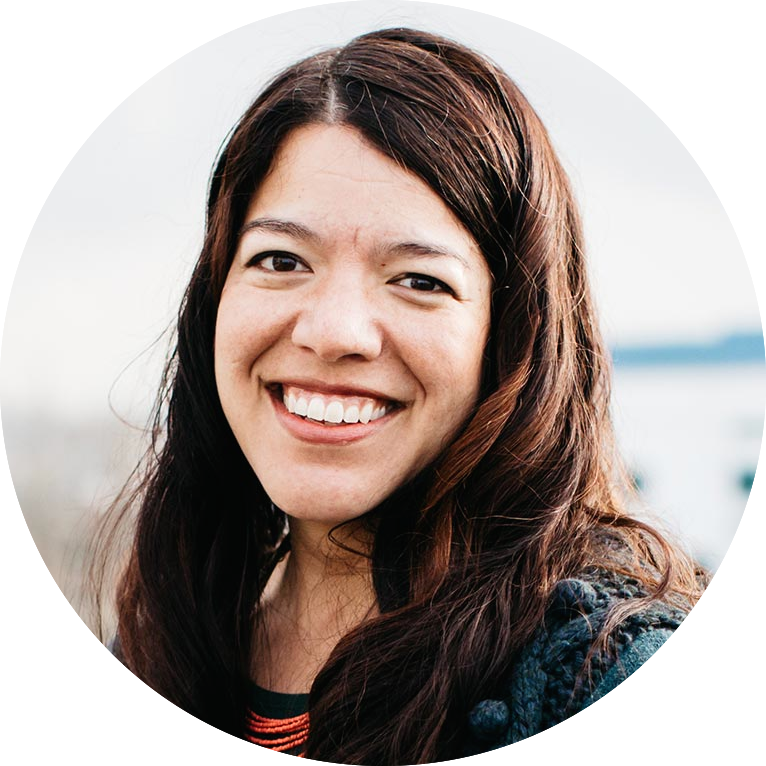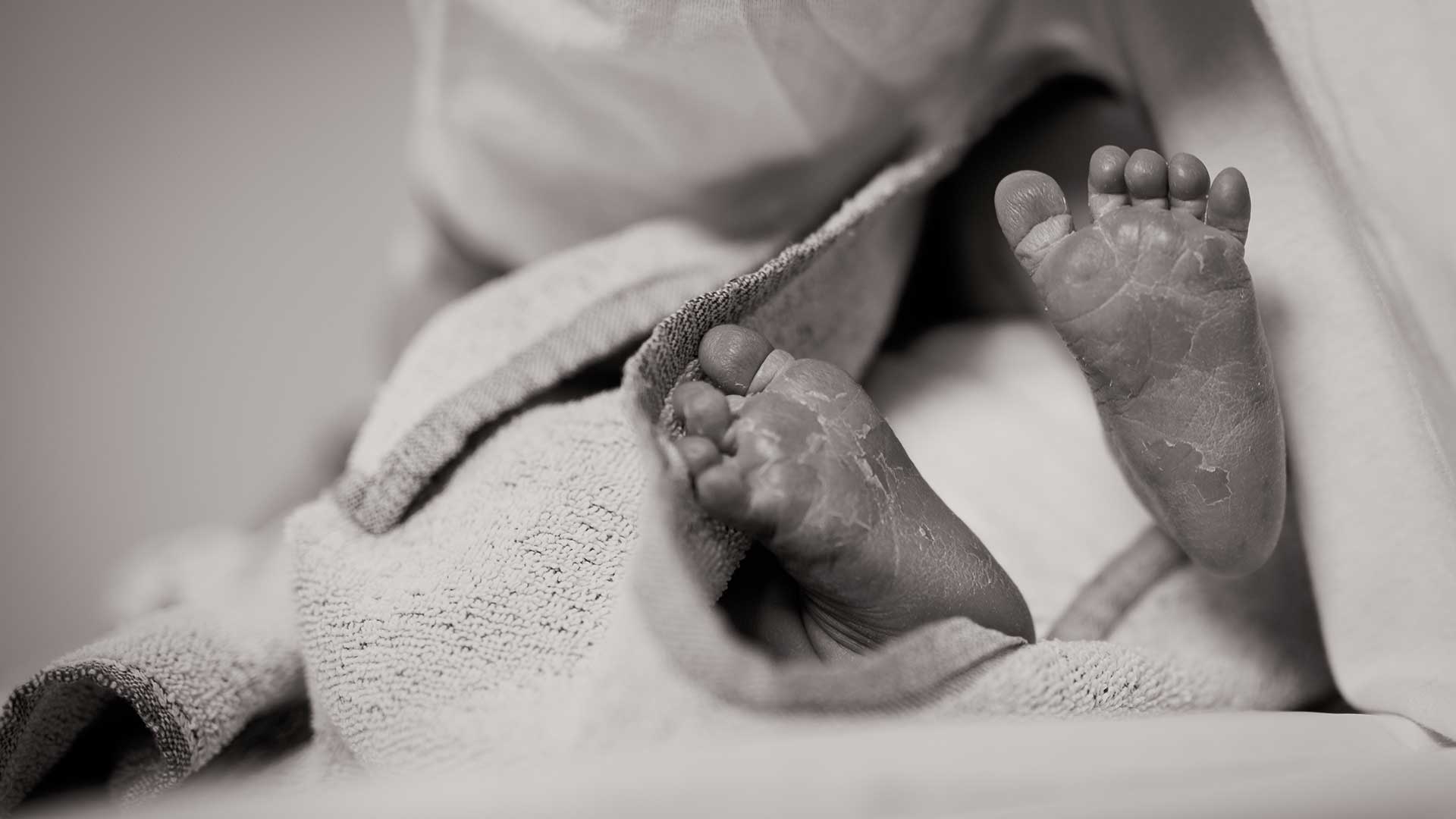Despite so much nativity art full of rosy cheeks and warm halos, the Incarnation was likely not a calm, quiet affair. Yet in the midst of the night that turned Mary’s world—and ours—upside down, she found a moment to pause and ponder. Here, Abby Wong-Heffter (MA in Counseling Psychology, ‘07), a member of The Allender Center’s Teaching Staff, reflects on her own childbirth experience in light of Mary’s traumatic story, and on what that mysterious act of pondering might invite us to in this cultural moment.
“ But Mary kept all these things and pondered them in her heart.”
–Luke 2:19
I am captivated by this window into Mary’s character—this girl woman who chose a holy pause in the midst of the chaotic birth of Jesus. We don’t know how long she labored but have viewed illustrations of her traveling atop a donkey. What if the contractions began hours, days before she actually began to push the God child from womb to Holy Night? What if pain and groans and rumbling body earthquakes began while journeying across that unforgiving desert? What if water broke before they reached the inn that was to offer no vacancy? Had she imagined that she would be surrounded by the likes of midwives, women to encourage, coach, and nurse? Did Joseph find assistance, or were they alone in the darkened, dirty, cold cave as she screamed and pushed God With Us out into the world?
“Were they alone in the darkened, dirty, cold cave as she screamed and pushed God With Us out into the world?”
How many moments did the young couple have with this bloodied babe before the interruption of shepherds? Did it feel like an intrusion to this young mother, learning to nurse, exhausted? The lauded Virgin, likely soaked in sweat, maybe marveling at the 10 tiny fingers and 10 tiny toes, somehow welcomed these men into this sacred, intimate, private space and invited worship. And she pondered and kept it all close to her heart.
I held Mary, her pondering heart and receptive spirit, close during my own labor and delivery. I thought of Mary in my clean and well-situated delivery room, as I was offered a tub to soak in to ease the pain and discomfort. I thought of her as I was surrounded by nurses, monitoring my son’s heartbeat while still in utero. I thought of her as my doula and mother rubbed my lower back. In the most painful contractions, when I could barely catch my breath, I thought of Mary. I borrowed her strength, her willing “yes,” and allowed her to be my beacon.
In this season, as my son toddles around our Christmas tree, tearing low-hanging ornaments from their branches, I think of Mary. I think of how when Jesus was the same age as my son, the Holy Family fled from Bethlehem to Egypt. They were refugees, running from Herod’s dangerous threat. They were seeking asylum, much like the thousands currently biding their time in Tijuana.
What are we asked to ponder during this Advent season? What am I asked to stay mindful and curious about as I wait and wait for light and rescue? To be honest, there is much I find myself weary of pondering. The holiday season for my clients, the women who have survived atrocious childhood sexual abuse, is often when they suffer some of their most difficult trauma memories. The time of Advent for them does not feel like a hopeful and serene waiting for the Prince of Peace. It is far more a time of bearing down, dissociation, coping. They seem to just want it to pass and to come out as unscathed as possible.
I desperately want to look away from the photograph of the 7-year-old Amal Hussain, the Yemeni girl who recently died of starvation. I avoid the detailed descriptions of caravanning families and what they fled from in Honduras and Guatemala. Trauma and abuse, the darkness of this world, is too much to bear. Then I’m invited back to ponder Mary.
She said “yes,” but she did not know all of what she said yes to. Her yes preluded a labor that could have taken her life, a birth where amenities were non-existent and her physical poverty and “low estate” were accented. Her yes was before she knew she would become enemy of the state. But in the midst of chaos, she pondered and joined in worship. The first Christmas certainly did not imply a happily ever after. But the light pierces the darkness, interrupts the darkness, says that there will be a different story. I am invited to hold the disparity of light and dark and worship in the tension of the two. I will continue to borrow her strength, her willing “yes,” and allow her to be my beacon.


